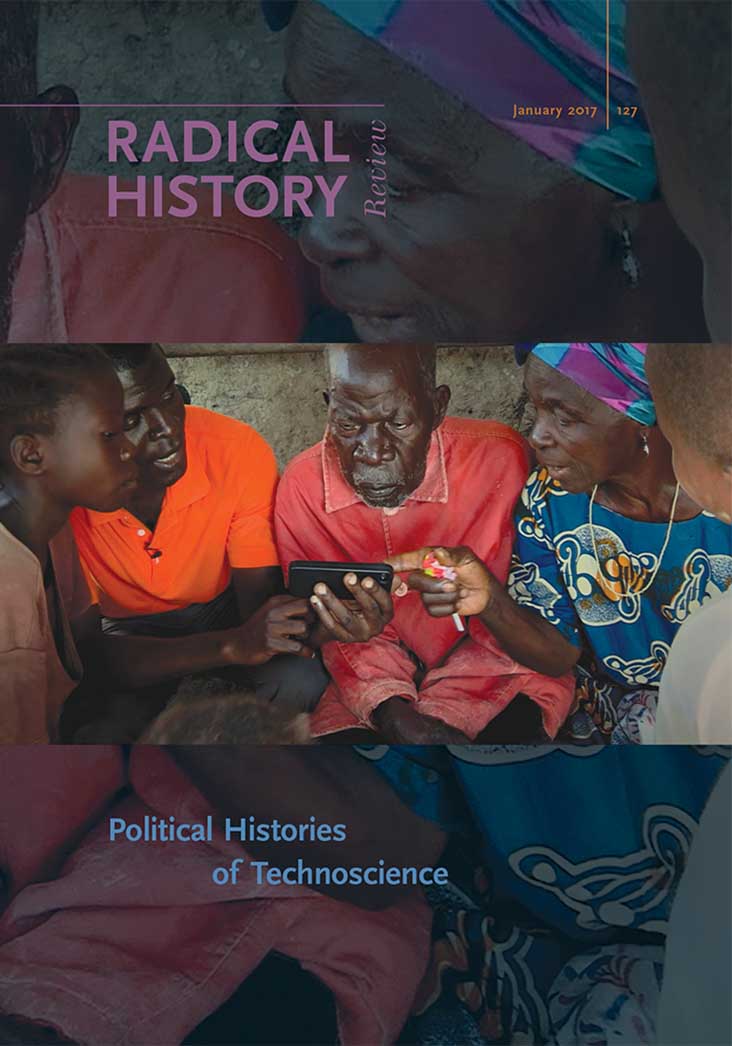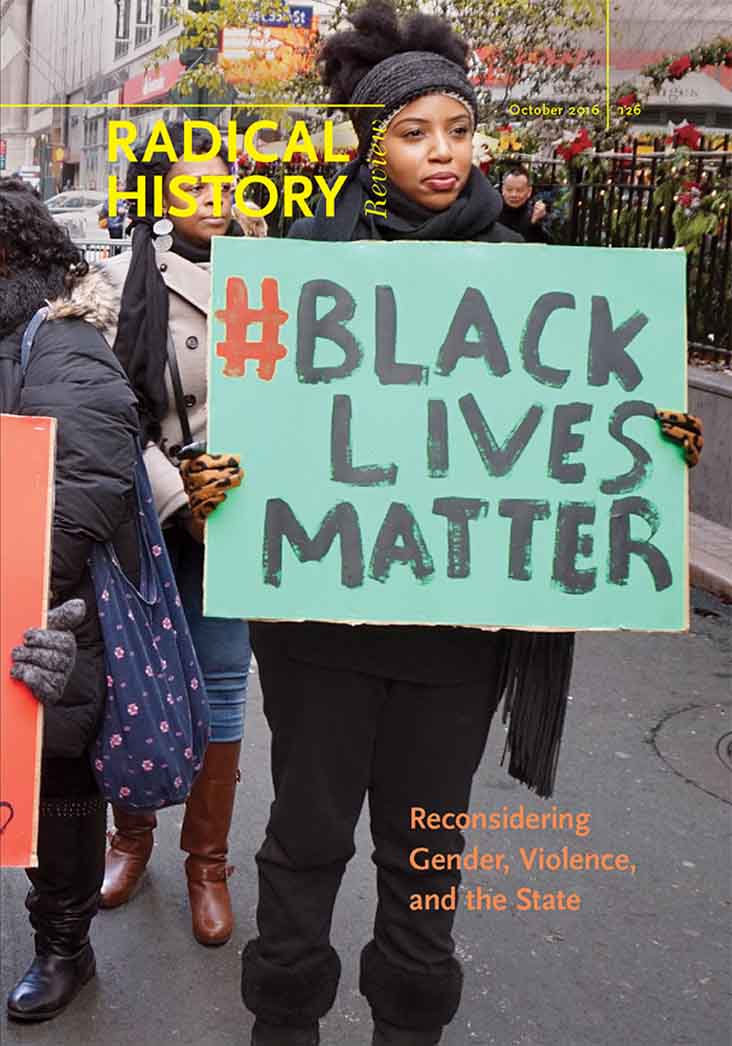Click here for the table of contents and links to full text.
This special issue of Radical History Review offers case studies of technoscience engaged both with the interdisciplinary tools of science and technology studies (STS) as well as the enduring legacies of radical political critique.
Technoscience, Modernity, and the State
Jonathan Hill, Jr. examines the creation of the largest electrical grid in northern Mexico in order to trace the relationship between material infrastructures of power and state formation. David Roth Singerman examines how standards for making “pure” sugar rendered invisible the labors of both plantation workers and commercial chemists working in Caribbean-based international sugar refineries.
Rethinking Postcolonial Science and Technology
Keith Breckenridge, Gabrielle Hecht, and David Serlin discuss the state of African histories of technology since decolonization and advocate new directions for future work in African STS. Suman Seth offers a genealogy of postcolonial approaches to STS, from its origins in the mid-1980s through current work on postcolonial technoscience.
Vital Knowledges
Rebecca Herzig and Banu Subramaniam trace the concept of “bio-capital” found in recent STS scholarship. Anthony Hatch examines the historical role of surveillance technologies in galvanizing US-based black liberation movements. In a roundtable discussion, Brian Beaton, Amelia Acker, Lauren Di Monte, Shivrang Setlur, Tonia Sutherland, and Sarah E. Tracy debate the growing profession of data science and the political and ontological repercussions of living with Big Data.
Histories of Radical Science
Alice Bell recounts the origins of the British Society for Social Responsibility in Science (BSSRS). Sigrid Schmalzer reflects on her experiences teaching about Science for the People, the US-based organizational counterpart to the BSSRS, in order to introduce students to histories of radical scientific and political engagement. Daniel Chard reflects on his experiences teaching about Science for the People using declassified FBI files documenting surveillance of radical US science activists during the early 1970s.





